Why Sweden Refuses to Call White Terrorism by Its Name
Örebro Attack: How Media Protects White Extremism and Criminalizes Others
Silencing Voices: Sweden’s Reluctance to Confront Its Own Racism
In Sweden, the silencing of marginalized voices is systemic, not accidental. I have spoken about this at length—including in my TED Talk on silencing voices in Sweden—where I laid bare the reality of how Sweden suppresses those who challenge its whitewashed narratives. Voices like mine are treated as inconvenient truths rather than essential perspectives. And yet, here we are again.
A white supremacist attack unfolds. The media bends over backward to soften the perpetrator. The same recycled excuses reappear. And those of us who name the truth are ignored, dismissed, or attacked.
This is not just about journalism—it is about power, control, and a refusal to confront white violence for what it is.
How Media Protects White Extremism and Criminalizes Others
Days before the Örebro attack, Elon Musk fueled an online firestorm, amplifying racist conspiracy theories about Sweden to his millions of followers. His tweets painted a picture of a nation overrun by violent immigrants—an old, dangerous trope weaponized by the far-right. But Musk’s reach is different. His influence extends beyond fringe extremists; it legitimizes hate in mainstream spaces.
Each time he tweets about Sweden, Swedish media reacts. Politicians rush to respond. Headlines shift. The far-right, emboldened by Musk’s validation, spreads disinformation at scale. The consequences are tangible—white supremacist narratives gain traction, radicalized individuals feel justified, and then, as in Örebro, violence follows. Yet, when it happens, Musk faces no accountability. The media ignores his role, just as they ignore the ideological motivations of the attacker.
"No ideological motive confirmed."
"A lone wolf."
"Mental health issues."
We have seen this script before. Again and again. This was predictable. And it was preventable.
How the Media Hides White Terrorism While Criminalizing Others
If Swedish media were honest, this is how the Örebro attack would have been reported:
"Örebro Terror Attack: Far-Right Extremist Strikes Again"
"White Supremacy in Sweden: How Media Narratives Obscure Radical Hate"
"Far-Right Threat Grows: The Örebro Attack Must Not Be Softened"
Instead, what did we get? Excuses. Deflections. A carefully curated narrative that protects whiteness.
White Extremism is the Violence That Doesn't Make Headlines
The same Swedish media that rushes to label racialized suspects as criminals, extremists, or gang-affiliated hesitates to call white attackers what they are—terrorists.
It’s a formula we’ve seen before:
If the attacker is white, he is a “disturbed loner” with mental health struggles.
If the attacker is Black or Muslim, he is immediately linked to a broader extremist network.How Swedish Media Frames White vs. Non-White Violence
This double standard is not unique to Sweden, but it is particularly blatant here. Consider these cases:
Anders Breivik, Norway (2011): Killed 77 people in a white supremacist attack. The media framed him as a disturbed individual, not as part of a larger extremist movement.
Christchurch Shooting, New Zealand (2019): The shooter published a manifesto outlining white nationalist ideology, yet headlines focused on his personal struggles.
Stockholm Truck Attack (2017): The attacker was immediately labeled a terrorist with ideological extremism within hours.
White violence is individualized. Black and brown violence is collectivized.
"When the attacker’s far-right background surfaced, the media had already done its job softening his image."
The Swedish Media’s Role: Who They Protect, Who They Criminalize
During a recent discussion with Ulrika Hyllert, head of the Swedish Journalists’ Union, I raised a crucial question: How can Swedish journalism improve so that it truly represents the entire population? This issue is not about individual shortcomings but about a structural failure in the industry to reflect the full diversity of Swedish society. 35% of swedens 10 million plus population having one or both parents born outside Europe.
Journalism, like all institutions, operates on “algorithms” of white norms—a reality supported by both data and lived experience. When I highlighted this in a public panel discussion, the response reinforced my point: Black women and other journalists with intersectional identities continue to face resistance when addressing systemic inequalities in the profession.
The experiences of racialized journalists in Sweden are well-documented. Johanna Lill-Inger Karlsson’s study, “The R Word — Race and Racism at the Swedish Radio,” illustrates how journalists of color at Sveriges Radio face a double bind: they are deemed too subjective to report on race-related topics, yet they feel obligated to ensure these issues are covered. This institutional bias ensures that journalism remains a space where whiteness is the default, and where lived experiences of racialized communities are treated as anecdotal rather than expert analysis.
These organized attacks have been extensively documented by activists long before they were acknowledged in mainstream journalism. Yet when we speak, our voices are dismissed.
When whiteness speaks, it is considered groundbreaking.
Before the panel, My Vingren, journalist, made it clear that she did not want to be positioned as a hero in these discussions. Instead, the focus needed to be on collective responsibility. That was precisely my approach—I lifted the discussion beyond individual experiences and emphasized that this is a societal issue. Yet, despite this effort, the conversation still reflected the deep-rooted power dynamics that shape Swedish journalism, where challenges to the status quo are met with resistance, interruption, and dismissal.
"If we are truly going to discuss the role of journalism in democracy, we cannot continue replicating the very power structures we claim to dismantle."
Örebro in a Global Context
White supremacy in Sweden aligns with a broader transatlantic radicalization pipeline. The Christchurch shooting in New Zealand, the Buffalo mass shooting in the United States, and German far-right attacks follow similar patterns of ideologically driven hate.
These events share key elements:
Attackers influenced by online hate forums.
Histories of racist propaganda.
Supportive social environments that normalize bigotry.
Why Sweden’s Hate Crime Cases Rarely Make It to Court
The Swedish legal system—from lawyers to police to prosecutors (åklagare)—is fundamentally unequipped, or unwilling, to recognize violence against non-white victims.
Even with 16 hours of recorded evidence, a confession, and documented proof, the police can refuse to take action on cases. Telling some non-white victims on recordings we hold that—since were drugged—that a crime was not committed against them. These are ongoing issues against the swedish police dating back years now.
Violence against white people is seen as exceptional. Violence against Black people is seen as normal.
The victim is blamed. The perpetrator is humanized.
"When Swedish authorities issue statements saying, 'There is no ideological motive,' instead of 'We do not know yet,' they are making a choice. They are picking a side."
Swedish Police and the Protection of White Supremacy
Sweden’s law enforcement is not just failing to stop white supremacist violence—it is actively enabling it.
Known white extremists are ignored until it’s too late.
Police resources are disproportionately used to monitor Black and Muslim communities.
Law enforcement excuses white attackers as "young men making mistakes."
Sweden’s failure to acknowledge and address white extremism is part of a global crisis.
Media bias, law enforcement inaction, and systemic racism create a dangerous cycle where white terrorists are excused while racialized communities are over-policed and criminalized.
As someone who has exposed these injustices for years, I will continue to document, report, and fight for justice. The truth cannot be erased, and neither can the voices demanding accountability.
"Sweden’s silence on white extremism is not just a Swedish problem. It is a global crisis. And we refuse to be erased."
But refusing to be erased is not enough. We must actively hold institutions accountable.
1. Tag journalists and media outlets that have downplayed white supremacist attacks.
2. Demand coverage that names white terrorism for what it is.
3. Expose the double standards—when a Black or Muslim suspect is arrested, how is the language different? Call it out.
Silence allows white supremacy to thrive. Sharing this article, questioning narratives, and refusing to let biased media shape reality is how we fight back.
Who is Lovette Jallow?
I am an internationally recognized activist, author, and humanitarian, known for my uncompromising fight against racism, xenophobia, and systemic oppression. My work in dismantling institutional biases and advocating for justice has earned me multiple accolades and global recognition.
Awards & Recognitions:
National Trailblazer Award Sweden (2024): Honored for driving radical, inclusive change in Swedish society.
WMA Gambia Humanitarian Award (2022): Recognized for being a leading voice against racism and discrimination in Scandinavia.
eQualizer of the Year (2021): Awarded for raising awareness on social justice, equality, and discrimination through digital platforms.
Region Stockholm’s Award for Combating Xenophobia and Racism (2020): Acknowledged for educational efforts in anti-racism and oppression.
Raoul Wallenberg Award (2019): Celebrated for unwavering advocacy against discrimination, injustice, and racial oppression.
IM Humanitarian Aid Prize (2019): Recognized for outstanding humanitarian and anti-racist efforts.
Internet Angel of the Year (2018): Honored for combating online hate, sexism, and racism.
Solidarity Award (2018): Awarded for consistent anti-racism advocacy and equal rights promotion.
Justice Prize (2017): Recognized for fighting against racism, discrimination in the beauty industry, and modern slavery in Libya.
These awards are not just personal accolades; they are a testament to the impact of my work in challenging the oppressive systems that Sweden and much of the world refuse to confront. I will not stop. We will not be erased.
"Sweden’s silence on white extremism is not just a Swedish problem. It is a global crisis. And we refuse to be erased."


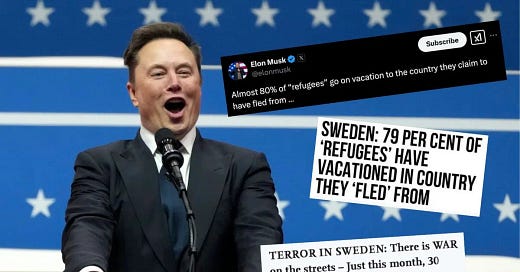


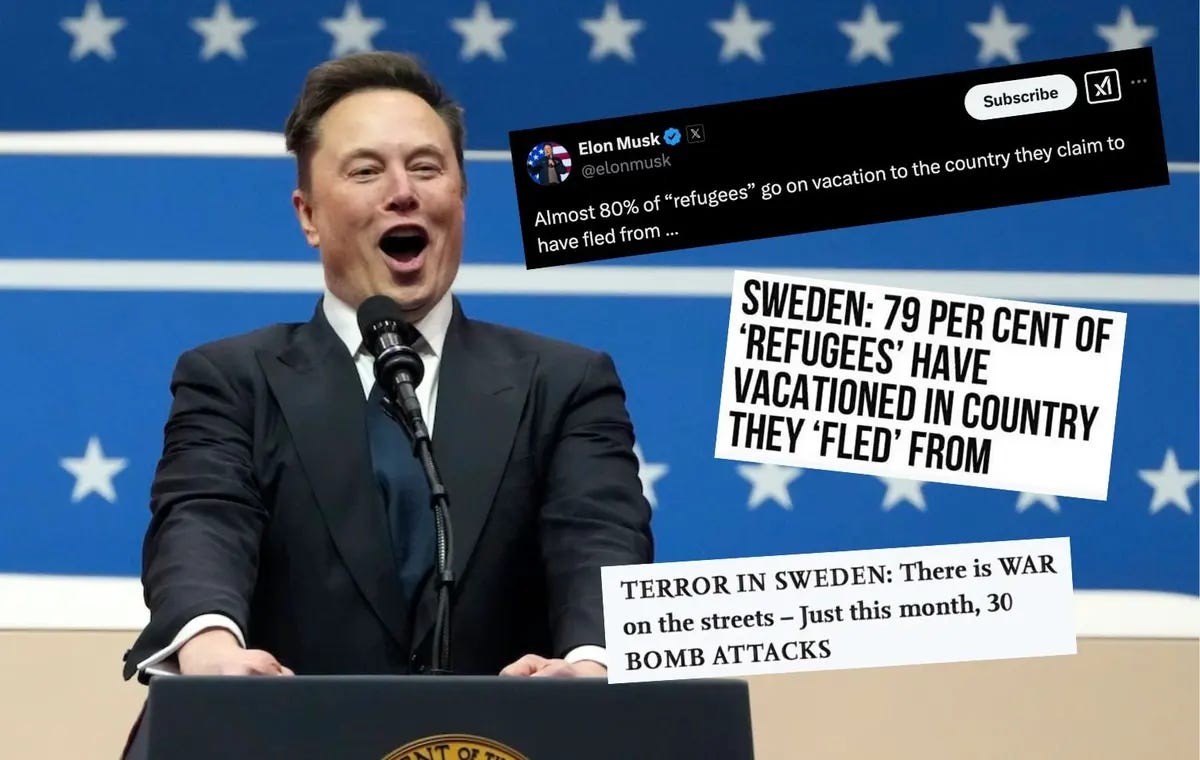
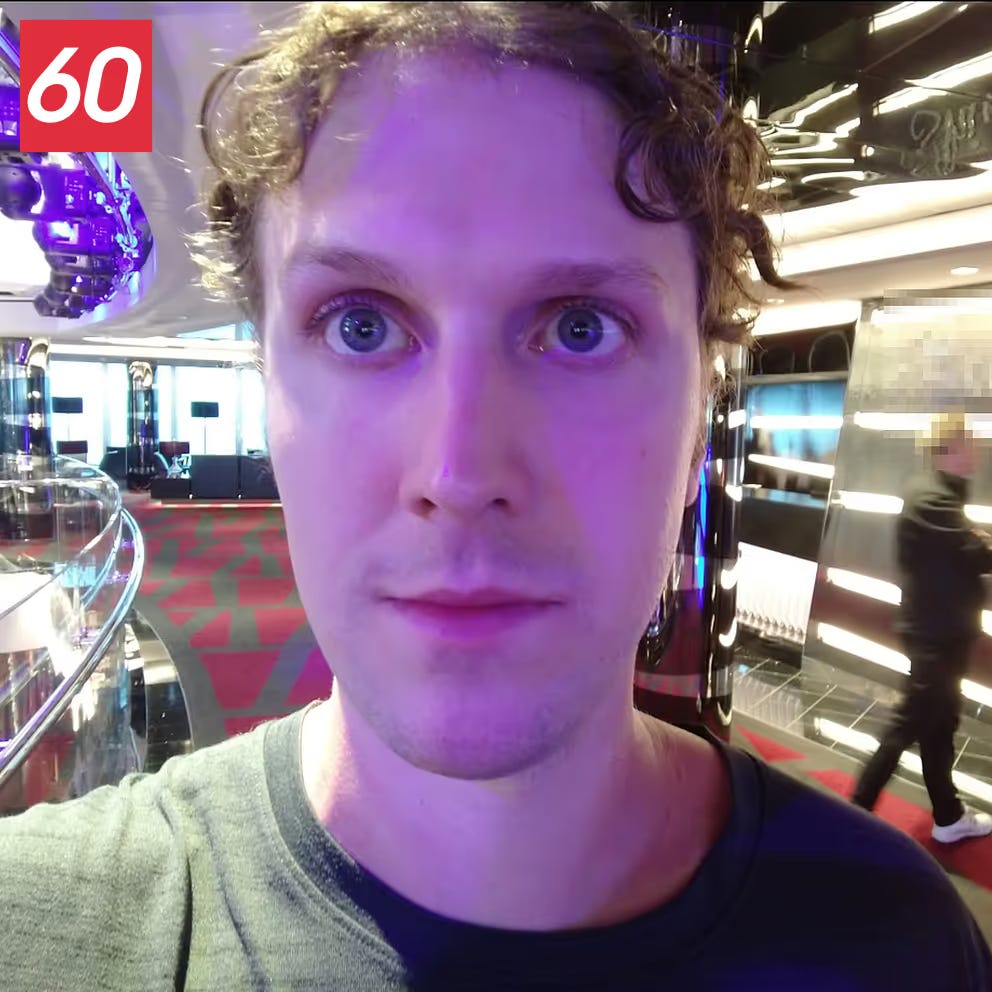
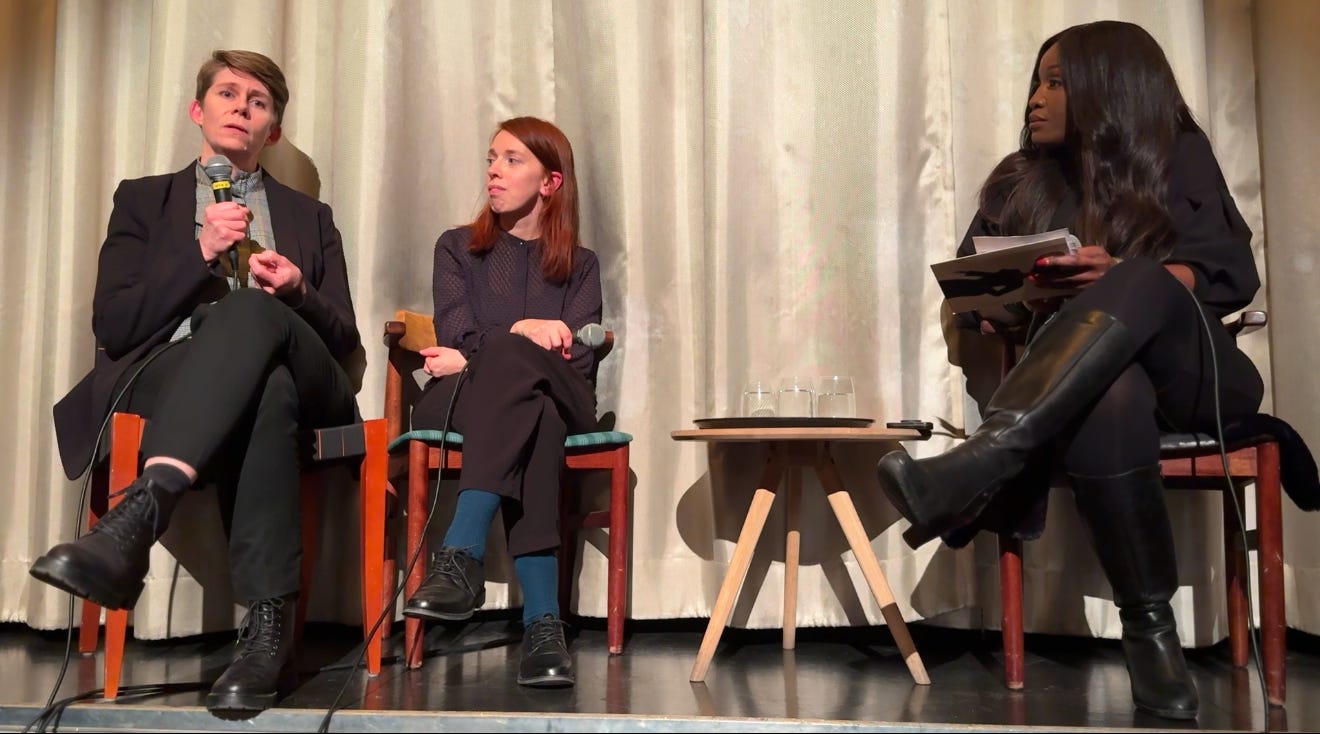
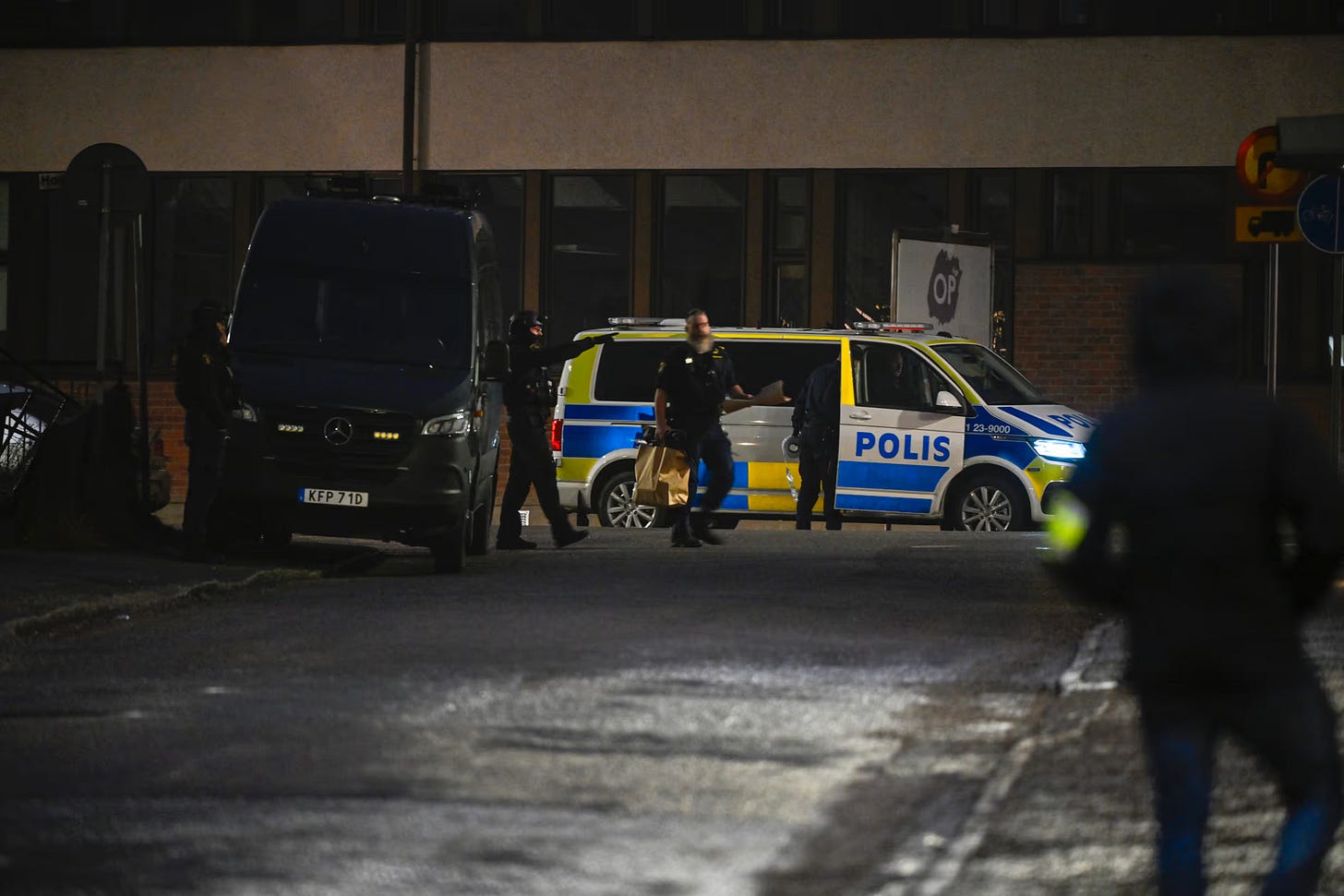
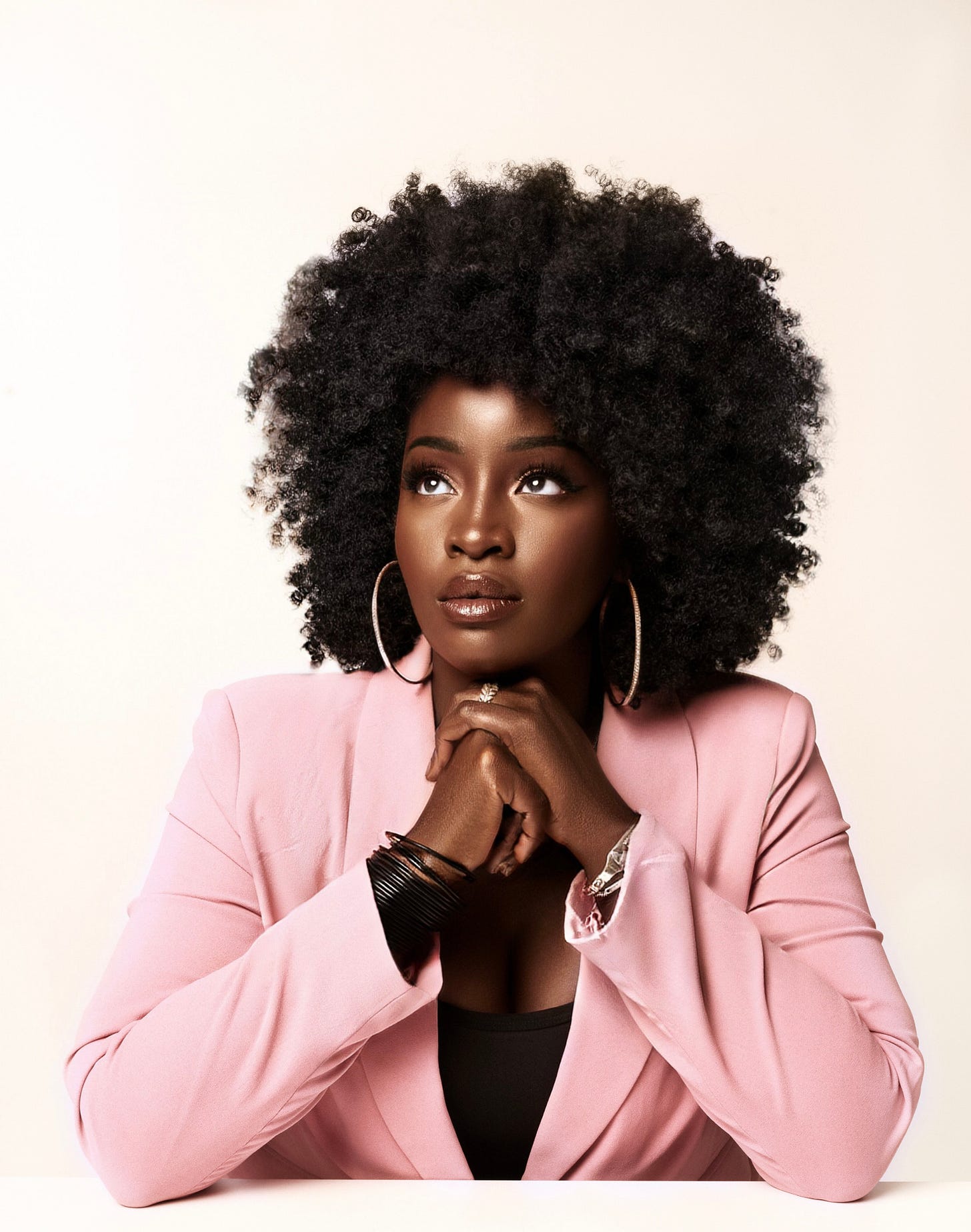
This happens in Australia. Brenton Tarrant is an Australian white supremacist who on March 15, 2019 stormed into two mosques and carried out the worst massacre in New Zealand’s history. Our worst mass murderer, and no apology from our country! I will never not be shocked by the lack of discussion about our white supremacy problem.